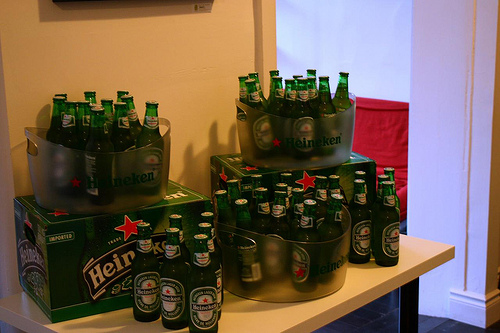 Looks like Waterloo is about to get an addition to the already existing hacker houses and VeloCity residence that are happening around campus.
Looks like Waterloo is about to get an addition to the already existing hacker houses and VeloCity residence that are happening around campus.
Does anyone remember Plurk? Plurk was the site that MSN China copied over 80% of the user experience and code for Juku (see the official Microsoft statement). Plurk is a place where people lurk. It has been compared to Twitter. It generates most of its traffic from Taiwan.
And now it looks like they are opening a more “mercenary/hustler driven” approach to a student dorm. Hopefully, this is the compensation they received from a Microsoft settlement, maybe it is a recruiting tactic – hiring developer talent is a challenge and finding entrepreneurial hackers for the cost of a mortgage payment + utilities is actually a really cheap acquisition tactic. With none of the overhead of the coop program and you’ve already skirted any labour laws by making them work for their own companies. Nice.
The program aims to bring in 3-5 students and run them through the gauntlet. Here is one of the welcome letters:
I’m Kan [looks like Kan Kan (LinkedIn)], and I’m one of the founders of Plurk. We’re a Twitter type service and the largest microblogging service in many parts of Asia and one of Canada’s most innovative startups (heck, even Microsoft copied us in China!). Me and two other very successful under-30Southern Ontario area entrepreneurs just recently (earlier this month) announced the launch of our Hacker House (www.hackerhouse.ca) program, inspired by the very cool Grotto (www.sfgrotto.org) and Y Combinator programs in San Francisco.
Basically, we plan to find 3-5 of the best and brightest entrepreneurially minded, technology focused students from the Universities of Laurier and Waterloo, bring them together in a collaborative environment, and then let the magic with the support of a team of guys (us) who have fostered and executed on some of the most successful startups on the web.
While we’re not affiliated with the university in any way, we offer a couple of BIG benefits over Velocity:
1. If you’re accepted, we provide your living accommodations absolutely free in a sweet pad just steps from the university for the term/year.
2. We take more of a cooperative mercenary/hustler driven approach, providing access to server space, mentorship, capital (in exchange for the option to buy equity into your venture) and other resources necessary to launch either (a) your own venture, (b) collaborate and percolate on ideas with other participants in the program during the term or (c) get hands on experience working on cutting edge projects (particularly in the social, mobile, geo-local, gaming, data mining & search spaces) in various stages of development.
3. While we may not have the visibility of Velocity, I can unequivocally say that the upside and quality of the experience would be far superior for those who want to execute and iterate on ideas at breakneck speed in a constantly changing market and shoot for the moon.
Our first cycle commences at the start of the Fall ’11 school term (September 2011) and we plan to take in 3-5 students and finalize our selection process by the middle of August. If you haven’t already finalized your living accommodations for the Fall term and like what you hear so far, I’d encourage you to check us out on www.hackerhouse.ca for more details or get in touch with me directly.
It is a very different approach to residence during the school year. Their focus seems to be very much competitive to UW VeloCity (full disclosure: I am the EiR at UW VeloCity and will be helping the students at UW get access, build products, etc.), but it is a very different approach. The UW VeloCity program houses 70 students, provides access to University and community resources, and for all intensive purposes is opt-in. Many students get into the residence looking for a place to live and learn about entrepreneurship and high tech startups as a career path. The goal is to provide a familiarization to hands-on entrepreneurship.
It is great to see others dedicated to continuing to build the community in Waterloo.




